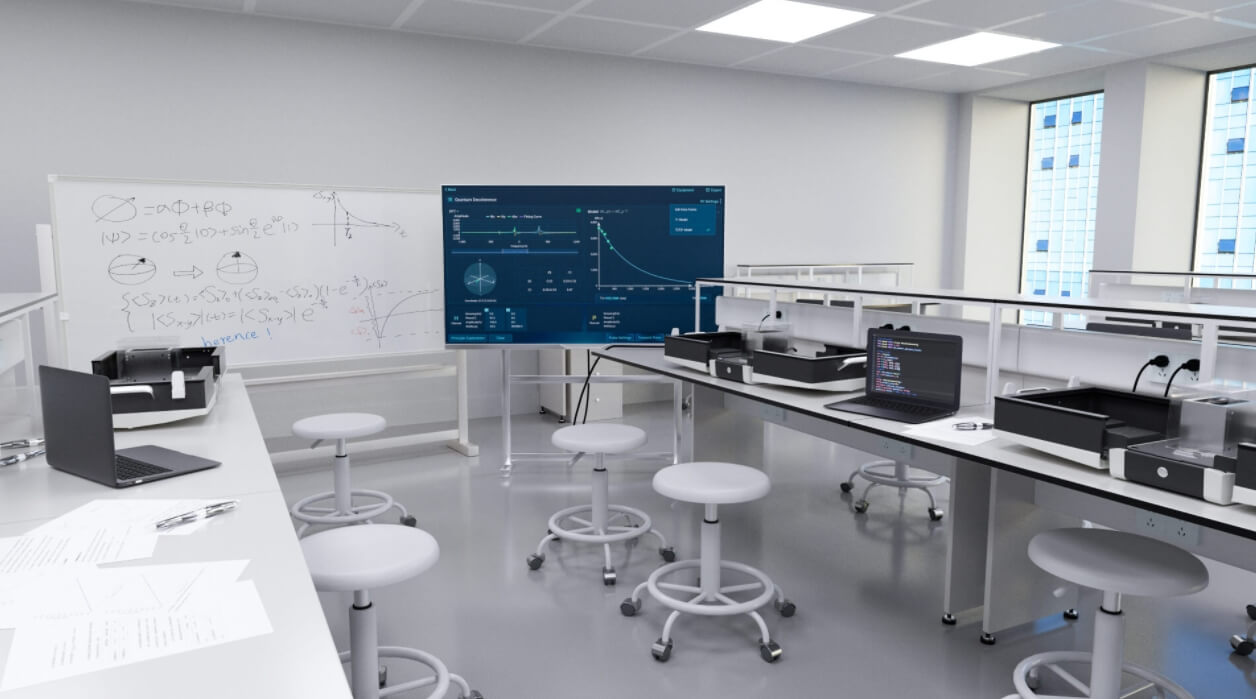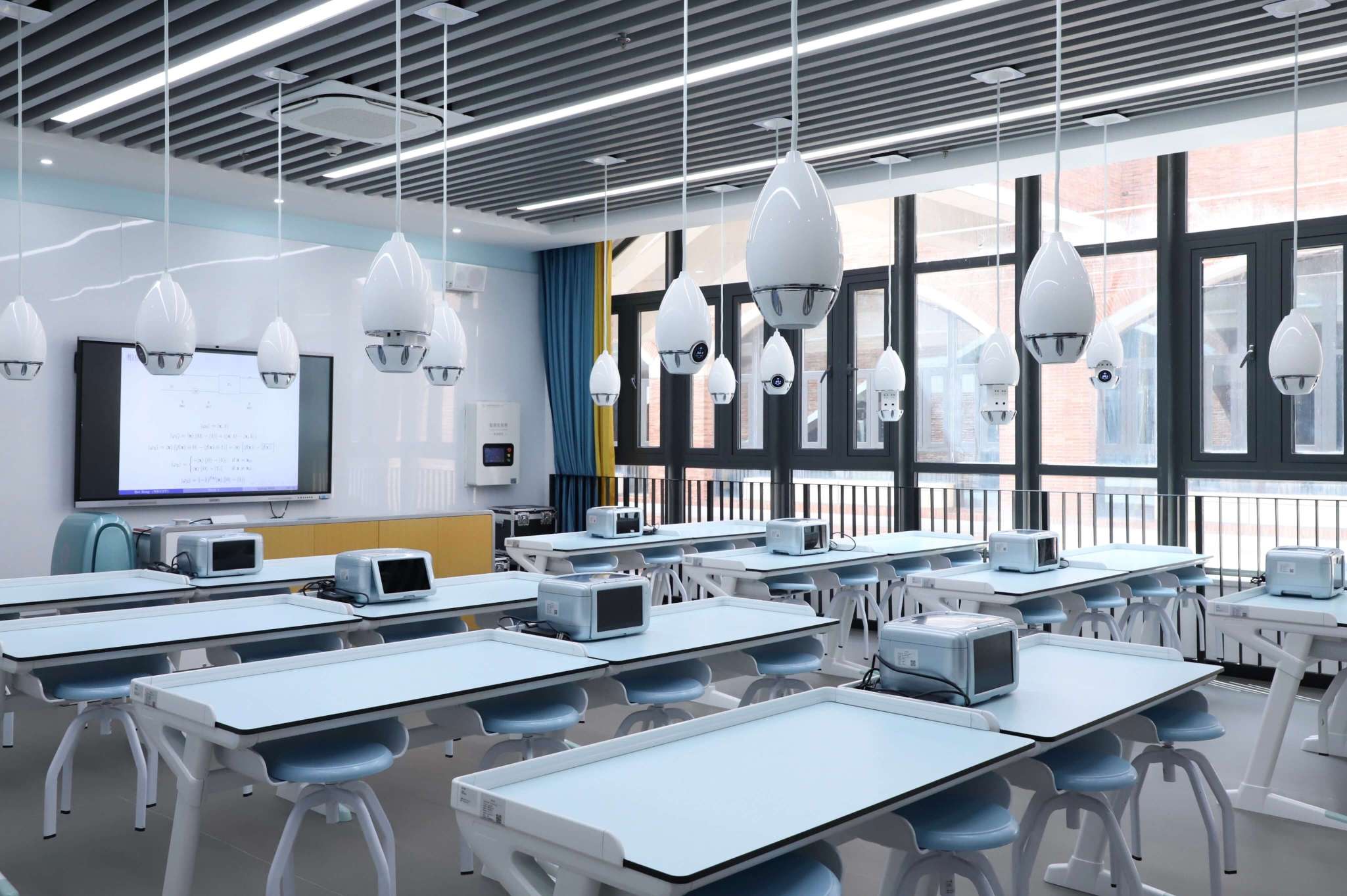What Is a Quantum Laboratory? Tools, Uses & Education
2025.06.06 · Blog quantum laboratoryquantum labquantum simulation
Introduction: What Is a Quantum Laboratory?
A quantum laboratory is a specialized environment where researchers, educators, and students experiment with and develop quantum technologies. These quantum labs serve as the birthplace of innovation in quantum computing, quantum communication, and quantum sensing, playing a vital role in both academic research and industrial development.
From constructing qubits to simulating quantum circuits, quantum labs help turn theoretical quantum mechanics into practical applications. Whether in a university, government facility, or quantum tech company, quantum labs are crucial for advancing the second quantum revolution.
Key Components of a Quantum Laboratory
A modern quantum lab includes advanced equipment tailored to manipulate and measure quantum states with extreme precision. Common components include:
-
Cryogenic systems: Essential for cooling superconducting qubits to near absolute zero.
-
Laser systems: Used in trapped ion and neutral atom quantum setups to manipulate qubit states.
-
RF and microwave electronics: Enable control and readout of quantum bits.
-
Vacuum chambers: Maintain ultra-high vacuum for systems like ion traps and neutral atoms.
-
Quantum computing hardware: Includes superconducting chips, ion traps, or photonic devices.
-
Quantum control software: Interfaces to program and monitor quantum experiments.
Types of Quantum Laboratories
Depending on the platform and purpose, quantum laboratories vary widely. Common types include:
#1 NMR Quantum Labs (Educational)
-
Use nuclear magnetic resonance to simulate quantum algorithms.
-
Widely adopted for teaching in universities due to lower cost and room-temperature operation.
Also Read:
Quantum Education and Quantum Courses: Useful Tools & Strategies
Quantum Education Kits: Learn Quantum Computing by Doing
#2 Superconducting Quantum Labs
-
Focus on ultra-low temperature systems and superconducting qubit control.
-
Used by leading quantum computing companies like Google and IBM.
#3 Trapped Ion Laboratories
-
Use electromagnetic fields to hold and manipulate ions as qubits.
-
Known for long coherence times and high fidelity gates.
#4 Photonic Quantum Labs
-
Involve light-based qubits, beam splitters, and photodetectors.
-
Prominent in quantum communication and secure networks.
#5 Neutral Atom and Rydberg Labs
-
Use laser-cooled atoms arranged in optical lattices.
-
Emerging for scalable quantum simulation.
Quantum Laboratory in Education and Training
Quantum labs aren't limited to cutting-edge quantum research—they're becoming increasingly central in quantum education. Many institutions and companies now offer:
-
Hands-on lab courses on quantum mechanics and quantum computing.
-
Educational quantum computers, such as SpinQ's Gemini Mini/Mini Pro or Triangulum Ⅱ, that run at room temperature and are accessible to high school and university students.
-
Cloud-based quantum labs like IBM Quantum Experience, where students can experiment remotely with real quantum hardware.
These tools are essential for cultivating the next generation of quantum engineers and researchers, thereby bridging the gap between theory and practice.
SpinQ Leads the Future of Quantum Education with Innovative Classroom-Ready Quantum Labs
SpinQ is leading the way in quantum education by offering a complete suite of Quantum Computing Experimental Classrooms tailored for both universities and K–12 schools. These solutions are designed to bridge the gap between theory and practice, making complex quantum concepts accessible to learners at different academic levels.
University Quantum Computing Laboratory
SpinQ's University Experimental Classroom is built for undergraduate students majoring in physics or quantum information science. It features:
-
Advanced educational quantum hardware capable of running real quantum algorithms.
-
Comprehensive teaching resources, including textbooks, experiments, and instructor manuals.
-
Hands-on lab training that helps students simulate, operate, and analyze quantum systems.
This lab solution empowers universities to offer full-fledged quantum computing courses, enabling students to gain real operational experience in a classroom setting.

K-12 Quantum Computing Laboratory
For younger learners, SpinQ provides a High School Experimental Classroom that simplifies quantum computing for students familiar with basic set theory and vectors. This version includes:
-
Compact, room-temperature quantum devices, like the SpinQ Gemini.
-
Curriculum-aligned learning materials with a focus on visual and interactive quantum learning.
-
Project-based experiments that nurture problem-solving and scientific thinking.

By bringing real quantum technology into high school classrooms, SpinQ is helping to democratize access to quantum education and inspire the next generation of quantum scientists.
SpinQ's Quantum Computing Experimental Classroom solutions have already been adopted by a growing number of schools and universities globally, showcasing the company's commitment to making quantum computing education practical, scalable, and inspiring.
Case Studies:
Applications of Quantum Laboratories
Quantum labs have real-world impact across industries:
-
Pharmaceuticals: Quantum simulations for molecular modeling.
-
Finance: Optimization algorithms tested on quantum platforms.
-
AI and machine learning: Quantum-enhanced algorithms are prototyped in quantum labs.
-
Cybersecurity: Development of quantum key distribution and post-quantum cryptography.
Each application begins in the quantum lab, where prototypes are developed and validated before scaling.
The Future of Quantum Laboratories
As quantum computing scales toward practical utility, quantum labs are evolving:
-
Miniaturization: Portable quantum devices and classroom-ready lab setups.
-
Automation: AI-assisted lab control and real-time error correction.
-
Democratization: Increasing access for schools and startups via cloud and quantum educational devices.
Quantum computing companies, such as SpinQ, are making quantum labs more accessible, while national quantum programs are funding infrastructure globally.
Conclusion
A quantum laboratory is more than just a research facility—it's the cornerstone of the quantum future. Whether you're a student, researcher, or tech innovator, understanding how these labs function is key to engaging with the quantum ecosystem.
As quantum education and hardware become more accessible, expect quantum labs to appear not just in elite institutions, but in schools, startups, and cloud platforms around the world.
Featured Content






